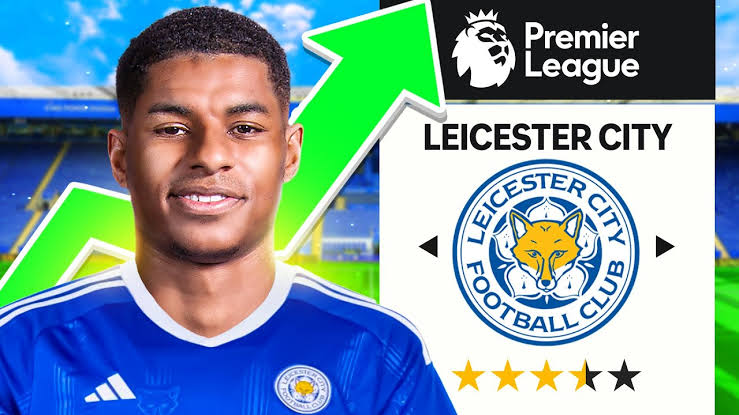

Marcus Rashford has been removed from Gareth Southgate’s tentative England team for the Euros. While Marcus Rashford’s absence from Gareth Southgate’s initial England squad for Euro 2024 may have come as a surprise, the 26-year-old’s form suggests otherwise. Rashford’s eight goals in 42 games in all competitions for Manchester United this season have prompted speculation about his future at Old Trafford.
Rashford is a proven elite player, as evidenced by his 131 goals in 401 competitive games for one of the world’s biggest clubs. However, this season has been one in which Rashford has failed to ignite, and at a time when the club is looking to reshape its identity now that Sir Jim Ratcliffe has been given oversight of football matters following his minority stake purchase at the beginning of the year, Rashford can no longer be considered untouchable.
United is torn over Rashford, a player who, on his day, has shown to be one of the Premier League’s most potent offensive forces. Last summer, he signed a new five-year contract that would take him through the summer of 2028. However, the issue for United is that the type of rebuild that they are believed to be aiming for will necessitate significant funding in order to facilitate it while remaining under the radar of the Premier League’s profit and sustainability rules, which will be phased out in its final year next season in favor of a model similar to UEFA’s squad cost ratio.
United has historically struggled with player trade, which has hampered progress. Player trade is more important than ever for clubs looking to comply with PSR requirements and UEFA’s squad cost ratio guideline. Between 2017 and 2022, United’s total profit from player sales was £92 million, significantly lower than any of their ‘big six’ rivals, with Chelsea’s talent conveyor belt from its Cobham Academy contributing to a £467 million figure. Liverpool (£263 million), Manchester City (£254 million), Arsenal (£226 million), and Tottenham Hotspur (£137 million) all did much better than United.
Player trading is critical to a club’s ability to operate in the market, and while United has been adept at increasing revenues through increased commercial deals and matchday revenues, the club’s lack of a coherent football strategy is evident in the numbers it has been able to re-enter through the transfer market. The Rashford issue will be seriously considered inside Old Trafford, and Southgate’s choice to remove a player who was previously seen as one of England’s important men could have an impact on what they are thinking.
When a player is sold, the club can book any profit that exceeds the remaining book value of the player, i.e. the remaining amortisation expenses of the player being purchased. Academy products, such as Rashford, are considered pure profit because they have no book value, which means that whatever transfer fee is agreed upon may be fully accounted for once the transaction is finalized.
Selling on academy products has been one of the main reasons Chelsea has been able to remain PSR compliant in the most recent fiscal year, with a number of Cobham graduates moving on for significant fees, while their replacements have their transfer fees amortized over the length of a contract, with clubs not required to account for the entire fee outlay in one fiscal year.
Rashford, who was thought to be earning around £350,000 per week last summer, has seen his worth decline as a result of a disappointing season, with analysts at CIES estimating his current value at €80 million (£68.3 million), while Transfermarkt puts it at €60 million (£51.2 million). Given his previous achievements and proven track record, United is expected to ask more than that, possibly in the region of £80 million. United will have to decide whether they believe Rashford can return to his prior levels of excellence next season. If there are doubts, he is an obvious contender for a possible exit.
The question will be whether this summer is the optimum moment to sell for United. On the one hand, they will have him for an extra year of his contract, which is important for maintaining market value in comparison to, say, next summer, but his stock is currently low, and his England omission will do little to entice would-be suitors to pay more than market value for a player coming off a season of decline, as evidenced by his absence from a major international competition.
It would also depend on which clubs are looking for such a player. He is of the proper age and pedigree, but it is difficult to imagine United selling to a ‘big six’ competitor, and the Premier League is where the most willing spending will occur this summer.
It’s also unlikely that he’ll go to Saudi Arabia, but Paris Saint-Germain, as well as clubs in the Bundesliga or Serie A, may be considered. Some parts will fall into place in the early weeks of the transfer market, potentially triggering a domino effect that results in United either sticking or twisting. It will also provide insight into how fruitful the market is and who is willing to invest.
United must improve their player trade abilities, which includes being ruthless and removing sentiment from the equation. A decision must be taken on the probability of Rashford improving his situation at the club; otherwise, the money they may recoup will shrink. It is a significant challenge for Ratcliffe and the new team behind the scenes at Old Trafford.

Leave a Reply